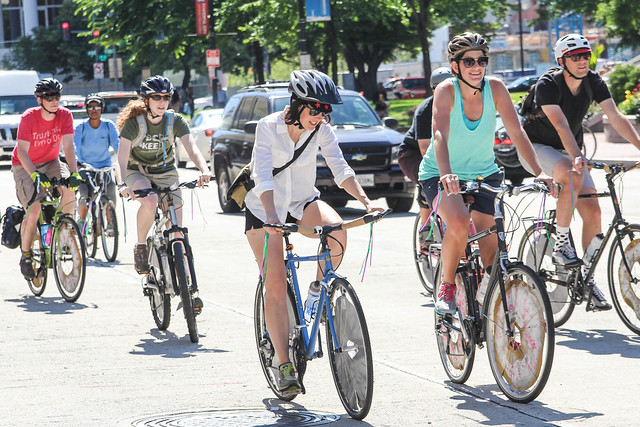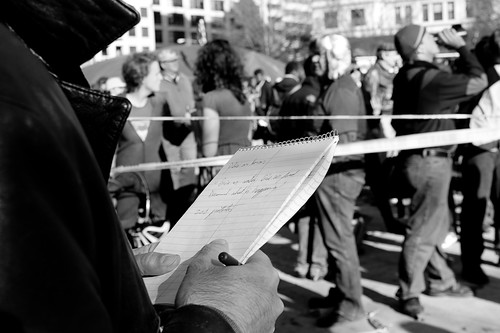
There was a time when the media considered itself a fourth branch of government. They were the ones responsible for “keeping them honest” and “speaking truth to power.” Objective arbiters of the truth, journalists were an elite class charged with communicating the news to the rest of us.
No organization embodied this high-minded civic sentiment more than The Washington Post, the paper of Woodward and Bernstein, the paper that brought down a president.
Today, the Washington Post published a poorly-written, factually incorrect, hate-filled screed advocating violence against cyclists. The author was Courtland Milloy, a Washington Post columnist, who writes:
It’s a $500 fine for a motorist to hit a bicyclist in the District, but some behaviors are so egregious that some drivers might think it’s worth paying the fine.
Believe it or not, but this piece (with its factual errors, stereotyping and threats of violence) was reviewed and edited by editors at the Washington Post.
Several commentators (including me) had a tweet-exchange with one of them, asking how this could pass the Post’s supposedly rigorous standards. His reply:
@sharrowsDC Not saying I agree w/ him. Just saying Courtland is pretty good about airing widely held but not widely discussed opinions.
— Mike DeBonis (@mikedebonis) July 8, 2014
You know what other views are widely held? Millions of people believe that Obama was born in Kenya. Others think 9/11 was an inside job. And a big chunk of the US population is certain that UFOs exist. But you don’t see their views in the Post. Why not?
Because the Post has editorial standards. They do not allow the beliefs of violent, racist crackpots on to their pages.
Unless you’re Courtland Milloy. He’s kept on staff because he’s supposedly the voice of black Washington – though he no longer lives in the city. Lacking a black perspective on the op-ed page, they pay him handsomely for the odd column, though his hate-filled rants would not be tolerated from a white writer. It’s patronizing liberalism at its worst, literally the soft bigotry of low expectations, and occurs despite the fact that there are plenty of talented black voices in this city.
Why not look for an African-American Ezra Klein rather than hanging on to this relic from the Marion Barry era?
Bikes have a way of revealing biases. For example, gentle-voiced Scott Simon of NPR, also hates and stereotypes cyclists. What other strange views does he hold? Are there other groups he thinks should be singled out for punishment? How do these biases influence what NPR covers?
Reporters say nasty things about cyclists because they can. Slurs against cyclists are acceptable while stereotyping other groups is not. Reporters give voice to this hate because there is no punishment for it. These biases exist and influence what stories get covered – and what stories don’t. Anti-cyclist hate is acceptable in the pages of the Post while the birthers are not.
The media is not objective. Do not believe what The Washington Post says. The Internet and Twitter provide wonderful real-time fact checking. We no longer have to blithely accept what our self-appointed guardians write, especially if they disgrace themselves by publishing hate-filled rants.
The media is not a fourth branch of government – the Internet has assumed that role. Read critically and make up your own mind.
